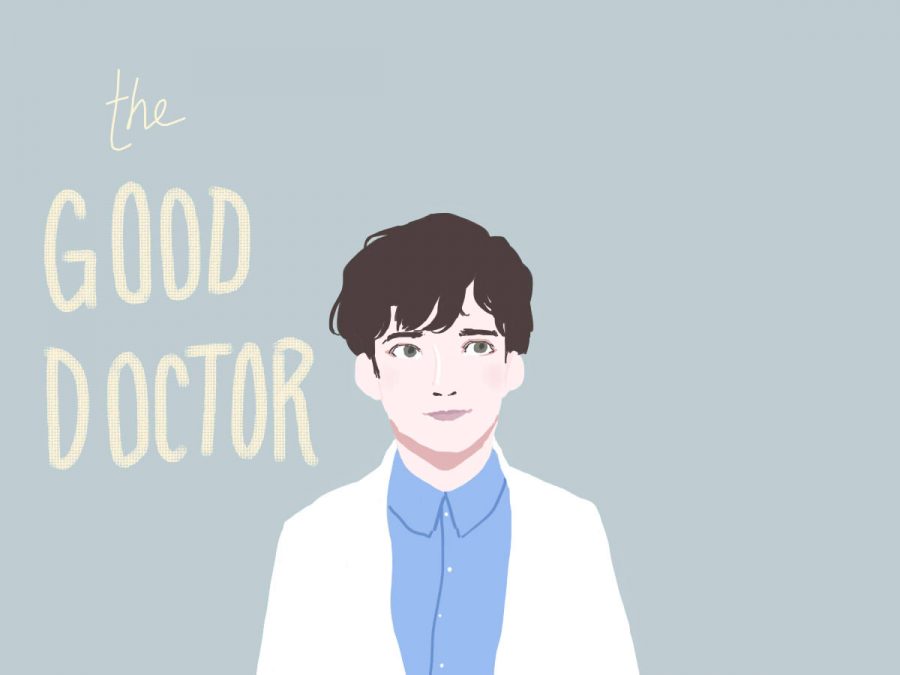ABC’s “The Good Doctor” raises questions about the portrayal of autism
With the lack of presence autism has had in the media, “The Good Doctor” makes a splash as the first network series revolving around a character with autism. The series, based on a South Korean drama, follows Dr. Shaun Murphy (played by actor Freddie Highmore), a young surgeon and autistic savant whose condition makes him incredibly intelligent but socially disadvantaged.
Shaun has communication problems that include a lack of eye contact during interactions, a narrow range of facial expressions, and challenges in being able to communicate and establish relationships with the people around him, all common symptoms of people with autism according to Encyclopedia Britannica.
Shaun clearly exhibits these symptoms; however, critics have questioned the fact that he clearly displays so many of them. In addition, Shaun’s unique intellectual abilities are largely a result of his savant syndrome, which according to the U.S. National Library of Medicine, occurs in 1 of 10 people with autism. In past and more famous depictions of autism (Rain Man, Mozart and the Whale, Mercury Rising, etc.), the main character is hardly ever seen without savant syndrome. These aspects have raised questions of whether the show uses Shaun’s condition as a tool for sentimentality and if this portrayal is truly representative the majority of autistic people.
Special education teacher Colleen O’Donnell explains that these judgements need to take into account that autism is a disorder that exists on a spectrum.
“The thing to remember about people with autism is you’ve met one person with autism means you’ve met one person with autism, because every single person is different…their issues and challenges are all different, their behaviors are different,” O’Donnell said.
This idea has been emphasized by director David Shore and actor Freddie Highmore, who highlight that Shaun is a particularly specific character and not meant to represent autism.
“It would be impossible… and a somewhat rude thing to say that this character will represent [all autistic people]. Hopefully, he will speak to everyone with differences… he’s not solely defined by his autism.” Highmore said.
One needs to look no further than director David Shore’s widely acclaimed House to see that “The Good Doctor” appears to be part of a rising trend in television of a protagonist with extraordinary skills but difficulty communicating and socializing with other people. However, the show’s producers emphasize that its basis relies on portraying a unique perspective from Shaun as an individual who is not defined by the disorder he has been diagnosed with. In showing at least one depiction of autism they hope to dismiss some misconceptions about people with autism.

Thuy-An Nguyen is a senior and a headlines writer. This is her first year on the staff and when she's not drawing or painting on anything she can find,...



darkstripe • Nov 17, 2017 at 7:37 am
ngl i find the show really stereotypical in its portrayal of autism. a wider range of autistic people with different abilities and disabilities should be displayed instead
also what really irks me is that the show has in its trailers some guy saying “he may be autistic but he is incredibly intelligent” (something among those lines) as if autism is a detractor from intelligence (filling a bad stereotype in and of itself), and honestly i find that kind of insulting.
there’s just a lot of implications here that i’m not liking. it may not be as utterly terrible as autism apeaks is, but it’s still pretty bad
Henna • Nov 16, 2017 at 10:50 am
Honestly, I can very closely relate to the symptoms shown in Shaun. When I was younger, my mom would always yell at me for not looking people in the eye when I talk to them. She still does. She has days when she’s trying to work with my brother and I to “understand” autism and some days she doesn’t, and this might be good for us. She’s always bought books and stuff but we never read them.
Killian Kenny • Nov 16, 2017 at 8:29 am
As a person who has autism I can proudly say that this series truly does capture what goes on in our minds. While all cases are different (just like hearing problems or sight problems) this show displays only a few of our struggles. The social aspect is spot on in my opinion, as I too have issues in social interaction. But my criticism is how heavily discriminated the main character is. While yes, we are discriminated, I feel that a real hospital would have looked more into who he is in person instead of who he is on paper. Most people think of autism as only those who have it truly bad; those who are considered “non verbal” on the autism spectrum. But seeing a character with autism that is clearly able to function in the real world gives me hope that in the future people will understand who we are and won’t bully or make fun of us. This show could be the key to that future, all we need to do now is open the lock and step through the door to a kinder world for all.
iris xu • Nov 16, 2017 at 8:28 am
YAS THUYYY YASSSS